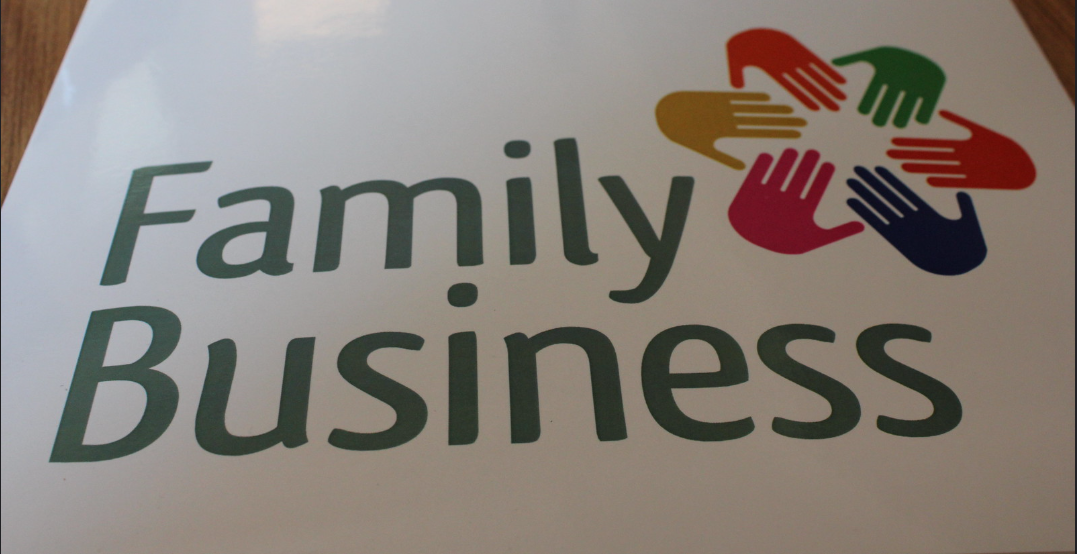
In Greece, respectively, family businesses are active in the whole range of sectors from industry and trade, to shipping and services.
In the countries of Northern, Southern and Western Europe, the awareness about the heterogeneity of family businesses is more widespread and they are now a separate entity in the public debate. In contrast, in Eastern Europe family businesses are equated with SMEs.
It is characteristic that in European countries there is no single definition of a family business, which is applied in every country, in public debate, legislation, as a criterion for strengthening entrepreneurship or as a criterion for collecting statistical data for academic research. This results in around 90 different definitions, which mainly require significant family influence in the ownership, management and governance of these businesses.
In several countries in Europe, distinct bodies have been established to support family entrepreneurship, such as:
• Networks of Family Businesses, with the aim of networking, exchanging information, as well as lobbying with various target groups, such as the general public and governments.
• Employers’ organizations or sections of chambers that recognize the fact that a significant number of their member businesses are family businesses.
• Providers of support services, such as universities that have created courses or even specialized study programs for the management of family businesses and at the same time invest in research on the economic and social contribution of these businesses, their management and governance, succession, family relations- business, innovation, competitiveness, and their internationalization.
Accordingly, Policies have been implemented to support these businesses, such as:
Legislations that facilitate business transfers, as generational transition is a critical issue for their viability and survival. Corresponding ones, which provide the possibility of institutionalizing non-voting shares, favoring the access of companies to financing and others that regulate the taxation related to transfers, since inheritance and gift tax is a significant challenge for family businesses.
Governance Tools, since family businesses need organizational structures that will proactively neutralize the appearance of conflicts.
In some countries, governance codes for family businesses have been drawn up and initiatives have been developed regarding corporate governance, family governance, family protocols, family statutes and family councils.
Business Transfer methodologies and ways to raise awareness of the importance of effective and timely succession planning are offered by various bodies, whether governmental, employers’ organizations or family business networks.
Finally, in many European countries, expert groups dealing with family businesses are investigating the sector and the challenges and trying to persuade governments and public authorities to modify the terms of the family business framework.
This discussion needs to start now in Greece as well, accompanied by the undertaking of specific political initiatives.
The lack of recognition and understanding of the diversity of family businesses and their frequent equation with SMEs is due to the lack of demarcation of this field. Their clear identification will highlight the economic and social contribution of these businesses, as well as the need to draw up specialized policies for them. In addition, representative organizations or a network of these businesses must be created, in order to gain direct involvement in governance processes, in collaboration with government agencies and policy makers, with the aim of supporting family businesses through perfectly targeted policies.
Policies for capital support of family businesses should also be explored. Tax incentives aimed at reinvested earnings or inheritance and gift taxes are useful, particularly for smaller business schemes. Support tools for financial obligations during the transfer of businesses can enhance their liquidity and reduce the risk of insolvency in financially difficult periods. In addition, frameworks for accessing external funding, without having to lose management control, are another measure of support.
Policies for training and developing the competitiveness of these businesses are also imperative. It is critical for family businesses to be able to manage the relationships and potential conflicts between the family and the business. In addition, it is important that they can recognize the changes in the business environment and optimize their internal operations, in the direction of increasing their competitiveness and ultimately ensuring a sustainable path.
Finally, initiatives to raise the awareness of these businesses about the importance of succession planning are also necessary, taking into account the social and demographic changes taking place in the country. The provision of information, guidelines, advice and planning tools to support succession can come through targeted training programmes, which can be offered by family business networks or employer organizations in collaboration with Universities and educational institutions.
The debate on the great unknown of the national economy and its targeted support policies must now begin.
* Dr. Ioannis Kinias, Assistant Professor, University of the Aegean
Latest News

Eurozone Inflation Eases to 2.2% in March
Compared to February, inflation decreased in 16 member states, remained unchanged in one, and rose in ten.

Bank of Greece: Primary Gov. Surplus €4.1b Jan.-March 2025
The data released today by the Bank of Greece revealed that the central government’s overall cash balance recorded a surplus of €1.465 billion in the first quarter of 2025, compared to a deficit of €359 million in the corresponding period of 2024.

Greek Government Reissues 10-Year Bond Auction for €200 Million
The amount to be auctioned will be up to 200 million euros, and the settlement date is set for Friday, April 25, 2025 (T+5)

Greece Defines Continental Shelf Limits and Maritime Zones in Landmark EU Document
The Maritime Spatial Planning (MSP) framework represents a comprehensive approach to spatial planning and is crucial for the successful development of a blue and circular economy

EU Praises Greece’s RRF Progress as Revised Recovery Plan Nears Completion
Athens is preparing to submit its revised “Greece 2.0” Recovery and Resilience Plan after Easter, with a slight delay from the initial timeline but with the European Commission’s approval.

Greek €200M 10Y Bond to be Issued on April 16
The 3.875% fixed-interest-rate bond matures on March 12, 2029, and will be issued in dematerialized form. According to PDMA, the goal of the re-issuance is to meet investor demand and to enhance liquidity in the secondary bond market.

German Ambassador to Greece Talks Ukraine, Rise of Far Right & Tariffs at Delphi Economic Forum X
Commenting on the political developments in his country, the German Ambassador stressed that it was clear the rapid formation of a new government was imperative, as the expectations across Europe showed.

Athens to Return Confiscated License Plates Ahead of Easter Holiday
Cases involving court orders will also be excluded from this measure.

Servicers: How More Properties Could Enter the Greek Market
Buying or renting a home is out of reach for many in Greece. Servicers propose faster processes and incentives to boost property supply and ease the housing crisis.

Greek Easter 2025: Price Hikes on Lamb, Eggs & Sweets
According to the Greek Consumers’ Institute, hosting an Easter dinner for eight now costs approximately €361.95 — an increase of €11 compared to 2024.









































 Αριθμός Πιστοποίησης
Αριθμός Πιστοποίησης